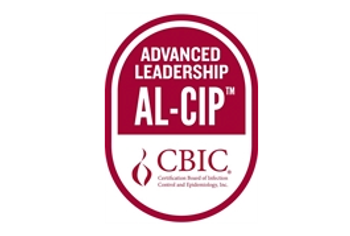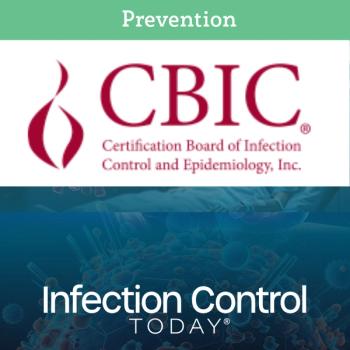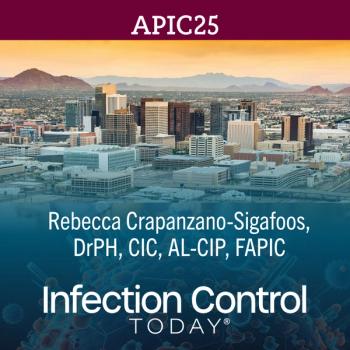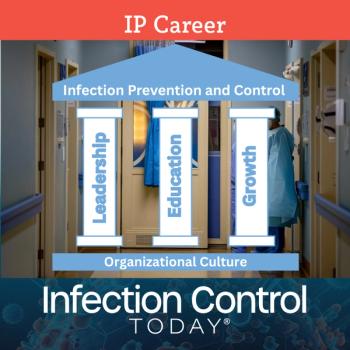
IPC Career
Latest News

Latest Videos

More News

Infection Preventionists Under Strain: More Work, Fewer Resources
This installment of the interview with study authors, survey data reveal rising hours and responsibilities for infection preventionists, with staffing shortages fueling burnout risks and threatening the safety of both patients and health care workers.

Quantifying the Pressures: Study Reveals Infection Preventionists’ Expanding Workloads
Infection preventionists emerged from the COVID-19 crisis carrying heavier workloads, broader responsibilities, and fewer resources. A new study reveals the toll and the urgent need for support.

As hospitals face layoffs and budget cuts, the need to demonstrate IPs' measurable impact has never been greater. For IPs, that means transforming your resume into more than a list of duties: it must tell the story of outcomes, savings, and lives protected. Now is the moment to redefine your role—not as a cost center, but as a catalyst for safety, efficiency, and organizational success.

In a world full of corrections and checklists, don’t underestimate the quiet power of encouragement. One sentence—spoken with sincerity—can spark confidence, courage, and change. Infection preventionists do more than monitor safety; they shape culture. So today, go beyond reminders. Speak life. Name the good. Someone’s future may depend on it.

If you’ve led projects that measurably improved infection prevention and control, it’s time to showcase your impact. The Advanced Leadership Certification in Infection Prevention & Control (AL-CIP) recognizes experienced professionals whose vision, innovation, and expertise have made a difference locally, nationally, or globally.

Sharps injuries remain a silent but serious threat in health care that infection preventionists are uniquely equipped to confront. With underreporting widespread and safety devices underused, it’s time for IPs to step into a leadership role, using their expertise in systems thinking, education, and policy to build a culture where staff protection is as prioritized as patient care.

Sharps safety isn’t just an operating room issue—it’s a system-wide concern that demands stronger policies, consistent reporting, and cross-departmental collaboration to truly protect health care workers.

Breaking the Cycle of Silence: Why Sharps Injuries Go Unreported and What Can Be Done
Despite decades of progress in health care safety, a quiet but dangerous culture still lingers: many health care workers remain afraid to report sharps injuries, fearing blame more than the wound itself.

From Awareness to Action: Educating Staff on Sharps Safety Standards
Sharps safety in health care isn’t just about knowing the rules—it’s about changing the culture. In a recent interview with Infection Control Today®, perioperative educator Amanda Heitman shares how fostering a supportive, informed environment can turn safety standards into daily practice.

Sharps safety in health care goes far beyond personal protective equipment. Amanda Heitman outlines a layered strategy of training, communication, and device innovation aimed at reducing needlestick injuries in even the busiest clinical environments.

Despite being a well-known occupational hazard, sharps injuries continue to occur in health care facilities and are often underreported, underestimated, and inadequately addressed. A recent interview with sharps safety advocate Amanda Heitman, BSN, RN, CNOR, a perioperative educational consultant, reveals why change is overdue and what new tools and guidance can help.

Infection preventionists, once hailed as indispensable during the pandemic, now face a sobering reality: budget pressures, hiring freezes, and layoffs are reshaping the field, leaving many IPs worried about their future and questioning their value within health care organizations.

The Certification Board of Infection Control and Epidemiology (CBIC) is calling on infection prevention professionals to help shape the future of the a-IPC exam through a vital new job analysis survey.

Once dominated by nurses, infection prevention now welcomes professionals from public health, lab science, and respiratory therapy—each bringing unique expertise that strengthens patient safety and IPC programs.

Research, Resources, and Reconnection: What’s New at APIC 2025
Dr Rebecca Crapanzano-Sigafoos explains how at this year’s APIC Annual Conference & Expo in Phoenix, leaders unveiled key initiatives poised to shape the future of infection prevention, including a new research network, an updated MegaSurvey, and a comprehensive guide to catheter-associated bloodstream infection prevention.

A Profession Without a Path: Reforming Infection Prevention and Control Education and Workforce Development
Despite its critical role in patient safety, infection prevention and control (IPC) remains one of health care’s most misunderstood and understructured professions. While COVID-19 thrust IPC into the spotlight, the field still lacks a clear entry path, standardized training, and broad institutional recognition, leaving many professionals to learn on the job with minimal guidance.

Infection preventionists are at the forefront of the infodemic; the keynote session offered suggestions on how they can combat and mitigate misinformation.

As federal cuts reshape public health, students nationwide are reacting with fear, frustration, and renewed resolve as they face an uncertain future in the field.

As infection threats evolve and the IP workforce faces burnout and attrition, a new study reveals a critical weak spot: inconsistent access to infection prevention certification—and the training needed to succeed.

When an unclear airborne isolation order disrupted patient care, one infection preventionist had to unravel entrenched practices and prioritize safety, communication, and staff trust.

Key Takeaways from WHO’s 2024 Global Report and Insights from Real-world Experience

As infection prevention infrastructure unravels, professionals face déjà vu from the pandemic’s darkest days—making resilience not just important, but essential for survival and progress.

Infection preventionists face relentless demands, but true resilience begins when they replace self-judgment with grace, processing emotions with acceptance and compassion—not perfection.

Infection prevention demands strength—but when vulnerability is praised in men and penalized in women, leadership becomes performance, not authenticity. It’s time to challenge that imbalance.

Trauma bonds. How do we break free? Brenna tells us, "We must remain unified in our shared mission, supporting one another as we navigate these challenging times."







